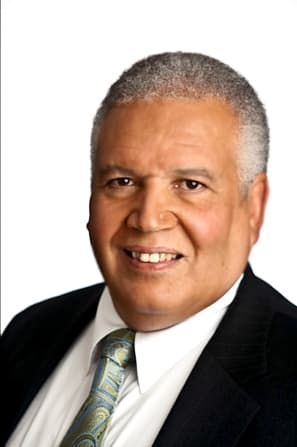Advertisement
Economic Abuse: Recognizing It In The Doctor's Office And Beyond
Sarah’s husband was not only the primary earner in the household, but he also controlled the family’s finances. In addition to physically abusing her, he would withhold Sarah’s “allowance” so that she and their children could not afford the co-payment to see a doctor and get the health care they needed.
Unbeknownst to Wendy, her partner amassed hundreds of thousands of dollars in credit card debt in her name. After their breakup, she learned that she had no legal way of addressing the fraud, and became responsible for repaying the debt that he had accumulated. The stress of paying off this debt took a disproportionate toll on her health, and she developed chronic fatigue syndrome, as well as anxiety and sleep-related disorders.
Stay-at-home mom Janine (all names have been changed) was dependent on her husband’s health insurance for her own care, and the care of her young, chronically ill daughter. Janine did not have any savings, nor was she able to train for a job while taking care of a sick child. Although Janine’s husband was verbally and emotionally abusive to both of them, she was forced to stay in the relationship to ensure that her daughter had access to health care.
These are just some of the stories about Americans who experience economic abuse, a form of domestic abuse that is not just a criminal justice issue; it is very much a health care issue.

Some background: Economic abuse is a serious, and often overlooked, form of domestic violence, which can leave a partner completely dependent on an abuser to supply basic needs. An abuser will control a partner’s finances and prevent him or her from accessing resources, maintaining control of earnings, and gaining financial independence. The abuser may also interfere with a significant other’s work performance or prevent education, job training, and the ability to find and keep a job.
Typically, economic abuse goes hand-in-hand with domestic violence, which is experienced by one in four women in their lifetime. We usually associate domestic violence with physical or verbal abuse, but economic abuse is just as significant and can have long-lasting and devastating effects. The National Coalition Against Domestic Violence reports that over 1.75 million workdays are missed each year as a result of absenteeism, decreased productivity, and health and safety costs associated with domestic violence.
Economic abuse can also affect a victim’s access to health care and medicine. A victim of abuse may resist leaving an abusive partner because his or her children are dependent on that partner’s health insurance. Additionally, the victim may avoid medical care altogether because transportation options have been withheld or limited, or because he or she cannot afford co-payments while a partner controls the finances.
Victims of domestic violence may not seek out necessary health care services for fear of revealing an abusive situation to medical professionals. This is especially true when an abuser is the primary policy holder on the family’s health insurance. In most cases, the victim does not want a partner to know that he or she is accessing health care because it can escalate the violence at home.
Therefore, physicians may not always see victims with acute, trauma-related injuries, but rather, other serious health issues that require treatment. For example, victims experience toxic stress that can manifest as chronic health conditions, like heart disease or a worsening of asthma. Economic abuse can have a long-lasting impact on a victim’s health and well-being — even after an abusive relationship is over.
It is important to remember that economic abuse, like other forms of domestic violence, can happen to anyone, regardless of age, race, gender, sexual orientation, marital status, or income.
Controlling someone’s finances and opportunities for advancement limit the resources that are needed when a partner decides to leave. Victims of economic abuse often feel forced to choose between staying in an abusive relationship or facing economic hardship and possibly poverty and homelessness.
We need to do more to address domestic violence. If you or a loved one might be experiencing economic abuse, there are steps you can take and resources you can access to get help.
The key steps for achieving financial independence include:
• Taking a financial inventory
• Obtaining a copy of your credit report to see if anything looks suspicious or unexpected
• Keeping personal financial information in a safe place (i.e. at a family member’s or at a friend’s)
• Keeping copies of home or car keys in your wallet along with extra money and emergency phone numbers
• Determining what it would cost to live on your own and start setting aside money in a safe space (even if it’s a few dollars at a time)
• Considering public assistance programs such as TANF or unemployment benefits, which can be accessed at your local Department of Health and Human Services.
• If you or someone you know is in an abusive relationship, there are resources to help. The multilingual Massachusetts SafeLink Hotline is available at: 1-877-785-2020. If you are in immediate danger, dial 911.
Evidence shows that addressing domestic violence in a health care setting can have a positive impact on health and wellness. Abused women of all backgrounds repeatedly use medical services for treatment of injuries and chronic conditions resulting from violent relationships.
At Neighborhood Health Plan, our Domestic Violence Initiative is gathering data on community needs and working with community health centers to provide trainings and implement screening policies. Such initiatives could help health care providers address economic abuse — but first, they have to know that this insidious form of abuse exists.
Paul Mendis, MD is the Chief Medical Officer for Neighborhood Health Plan. He is board-certified in internal medicine and has practiced primary care for more than 20 years in urban health center environments.
Further reading: National Coalition Against Domestic Violence fact sheet on economic abuse